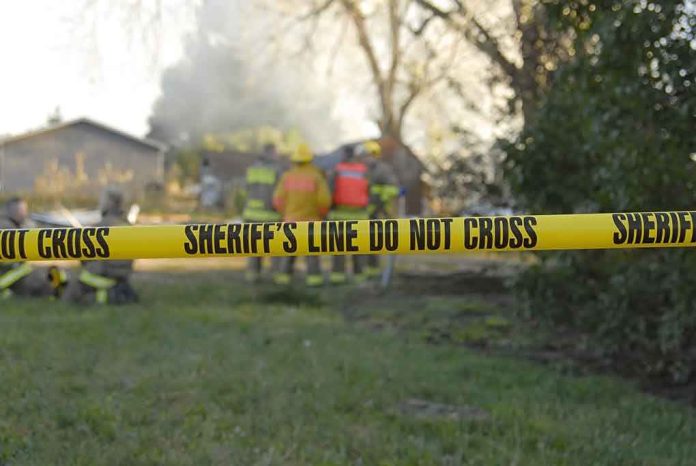
Thirty-two dismembered bodies found in an abandoned Mexican house expose an escalating cartel nightmare just miles from the U.S. border, highlighting the deepening threat to American security and values.
Story Snapshot
- Discovery of 32 dismembered bodies in Guanajuato marks one of Mexico’s deadliest mass graves in 2025.
- Ongoing cartel wars—between CJNG and SRL—have turned the region into a war zone, destabilizing communities.
- Authorities struggle to curb violence, while grassroots groups lead victim identification and advocacy.
- Rising violence in Mexico threatens U.S. border security, fuels illegal immigration, and challenges American interests.
Cartel Violence in Guanajuato Reaches New Extremes
Authorities in Irapuato, Guanajuato, uncovered the dismembered remains of 32 individuals buried under an abandoned property, a chilling escalation in a region now considered Mexico’s deadliest. This mass grave, discovered in August 2025, is the latest in a series of grisly finds, including 17 bodies in May and a mass shooting in June. The violence stems from a turf war between the Jalisco New Generation Cartel (CJNG) and the Santa Rosa de Lima Cartel (SRL), with each group fighting for control over lucrative drug, fuel, and human trafficking routes.
The industrial wealth and central location of Guanajuato make it a strategic prize for organized crime. Once a peaceful hub, the state has seen violence intensify since 2017 as cartels deploy extreme tactics—public executions, explosives, and even drones. The CJNG’s expansionist ambitions have destabilized local criminal networks, while the SRL fiercely defends its territory, especially fuel theft routes. Ordinary residents and local officials face constant danger, and even public events are no longer safe from attacks.
Families, Authorities, and the Limits of State Response
While law enforcement agencies, including the Guanajuato state prosecutor’s office, lead the investigation and forensic identification of victims, they remain under-resourced and frequently threatened by cartel operatives. Only 15 of the 32 victims have been identified so far, relying on advanced forensic techniques. In this vacuum of security, grassroots collectives like “Hasta encontrarte”—formed by families of the missing—play a critical role in searching for loved ones and demanding justice, despite facing ongoing threats and bureaucratic delays.
The inability of authorities to stem the tide of violence or prevent mass disappearances has eroded public trust. Communities are left traumatized and fearful, while the normalization of brutality undermines social fabric. The humanitarian crisis is compounded by limited resources for identification and prosecution, with criminals often operating with impunity. These failures not only devastate Mexican families but also have direct implications for U.S. security and border stability, as violence drives migration and criminal activity closer to American communities.
Broader Impacts: U.S. Security, Migration, and Policy Challenges
The ongoing cartel conflict in Guanajuato serves as a stark warning for American policymakers. The unchecked violence destabilizes the region and fuels illegal immigration, challenging the rule of law on both sides of the border. Escalating brutality, including mass graves and public assassinations, signals a growing inability of the Mexican state to protect its citizens or contain organized crime. These developments place additional strain on U.S. border resources and heighten the risk of cross-border criminal activity, including drug trafficking and human smuggling.
32 dismembered bodies discovered in abandoned house in Mexico’s bloodiest state https://t.co/eqLBw39hEn pic.twitter.com/4xtZMjJS6q
— New York Post (@nypost) August 5, 2025
Experts and security analysts highlight the urgent need for comprehensive strategies addressing both the illicit economies driving cartel violence and the root causes of regional instability. While some advocate for militarized crackdowns, evidence suggests these efforts have often fragmented criminal groups, leading to more competition and bloodshed. Meanwhile, advocates stress the importance of supporting community-led search efforts and rebuilding trust in legal institutions. For American readers, the situation in Guanajuato underscores the consequences of weak borders, government overreach that fails to deliver security, and international policies that let violence fester dangerously close to home.
Sources:
Dismembered Remains of 32 People Discovered in Abandoned House in Guanajuato, Mexico
Conflict Watchlist 2025: Mexico
Cartel violence erupts in Michoacán, Jalisco and Guanajuato in a new wave of attacks





